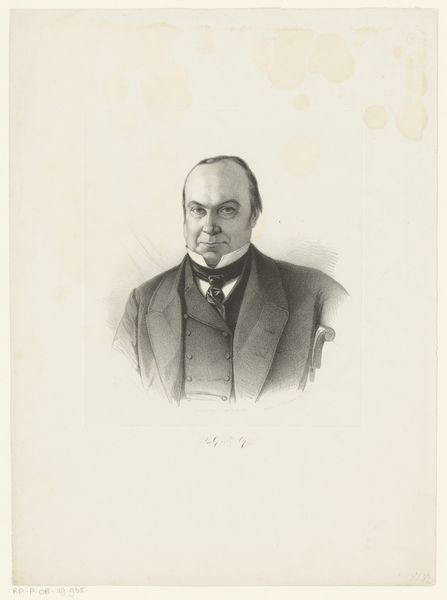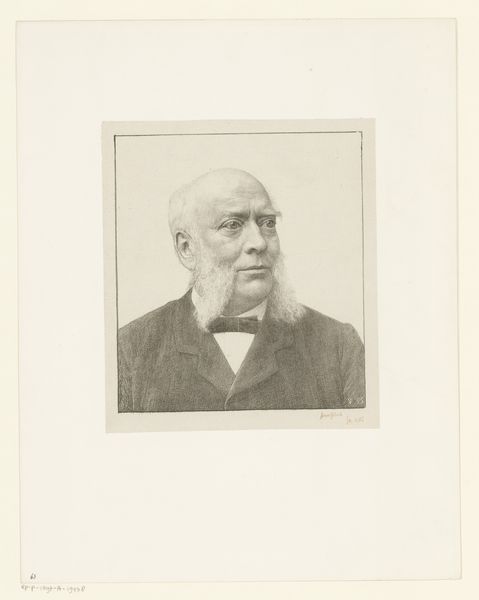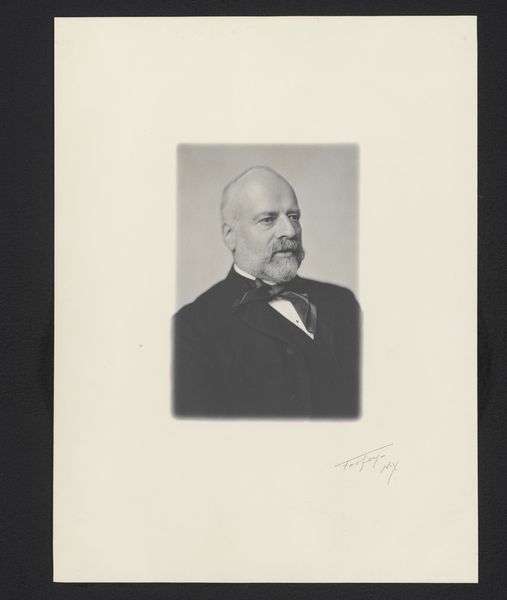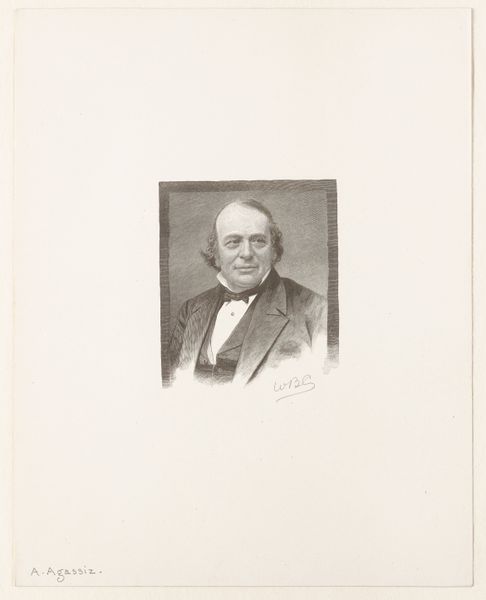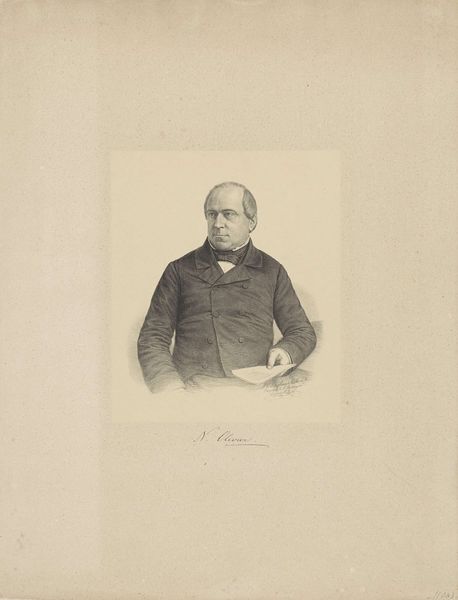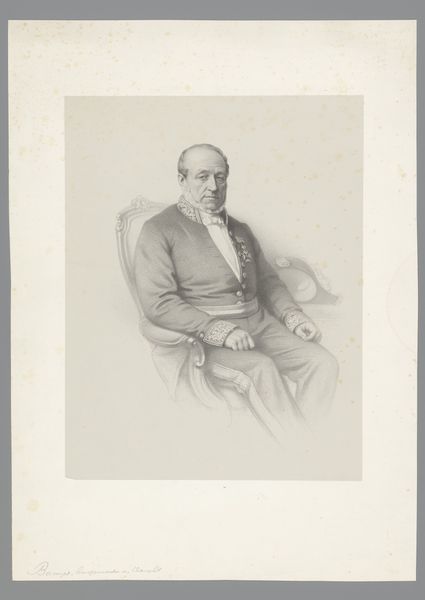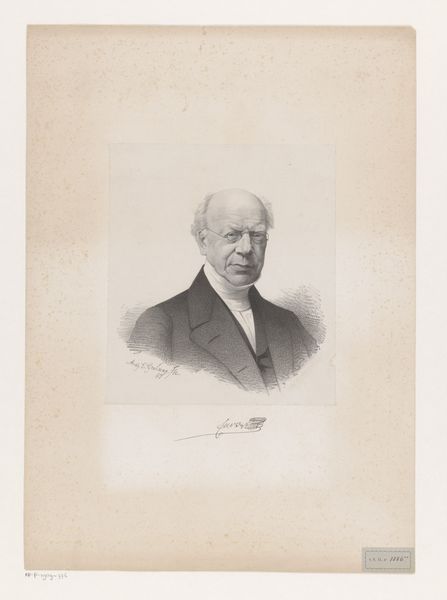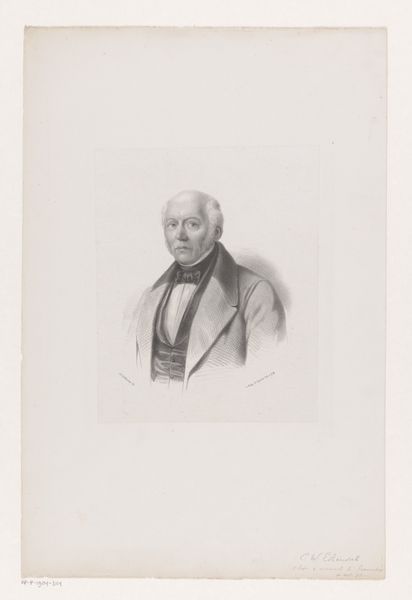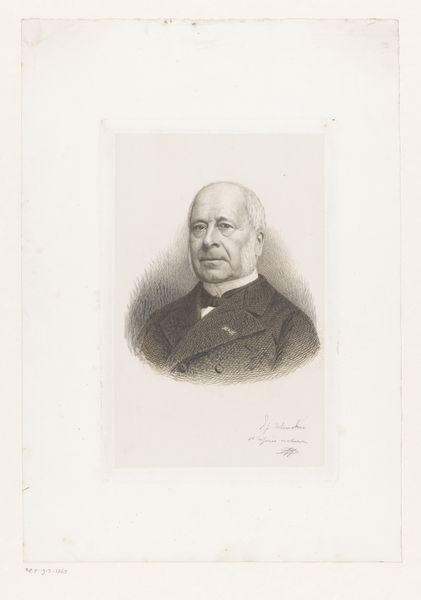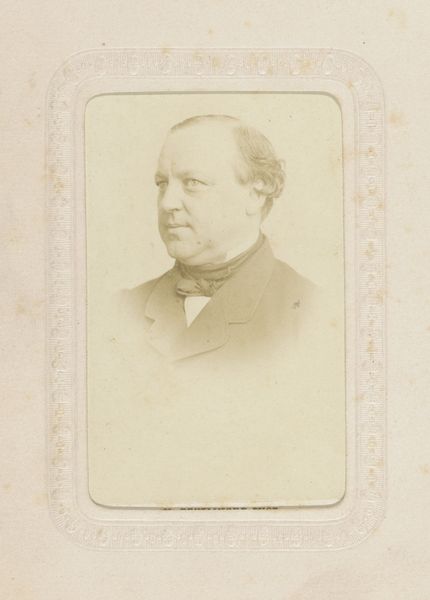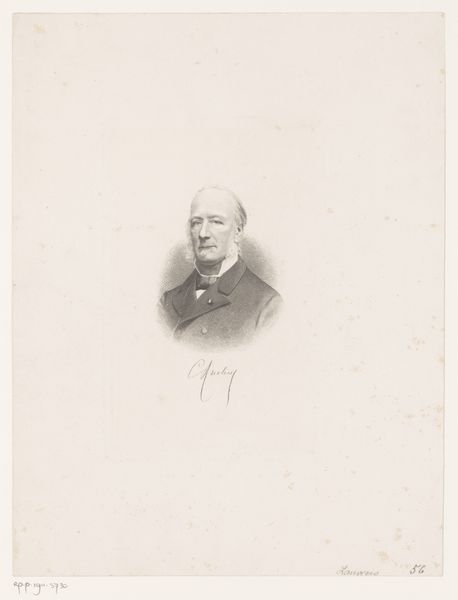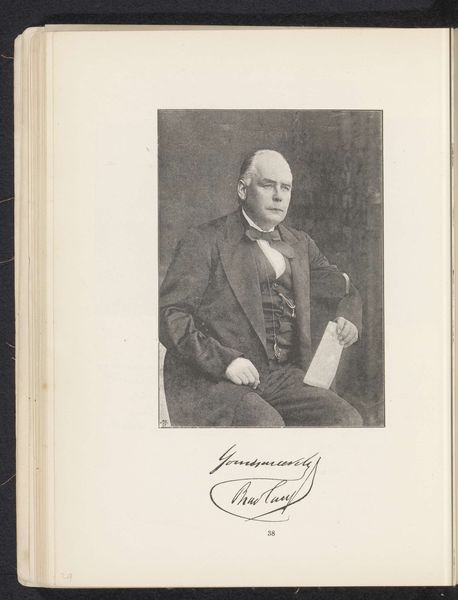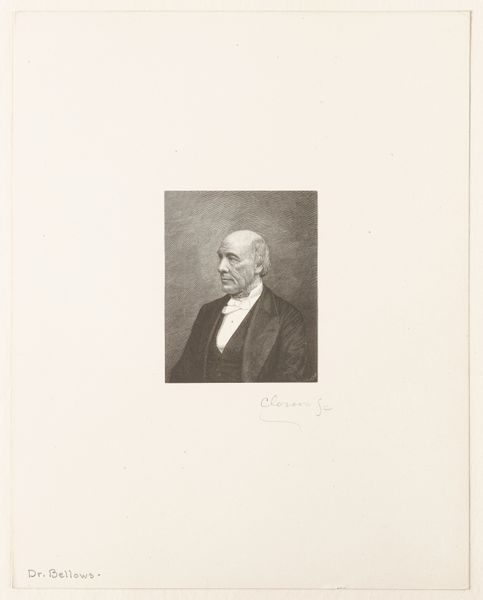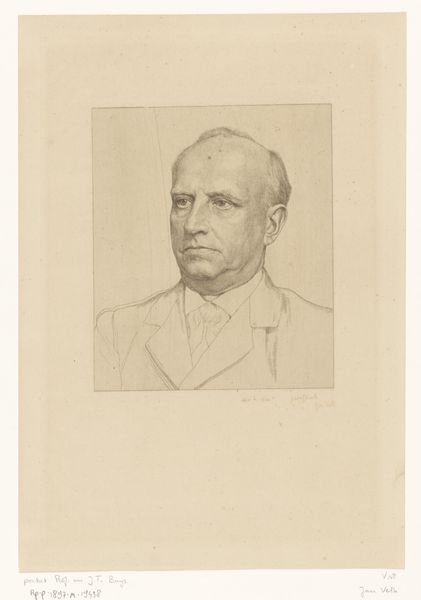
photography
#
portrait
#
photography
#
realism
Dimensions: height 115 mm, width 102 mm
Copyright: Rijks Museum: Open Domain
This portrait of Hercules Robinson was created by Elliott and Fry sometime in the late 19th or early 20th century, using photographic methods. Photography's rise changed image-making drastically. What had been the domain of skilled painters became a chemical process, reproducible in multiples. The ambrotype, tintype and other early forms were superseded by gelatin silver prints like this one, which could be made in large numbers, and at relatively low cost. Consider this image as both a likeness of a man, and an artifact of mass production. The very process of photography transformed portraiture from a bespoke, skilled practice to something more in line with industrial manufacturing. Studios like Elliott & Fry had many employees, each specialized in a particular aspect of the work. The result was a commodification of images, where the value resided in the subject matter more than the artistic labor itself. So, the next time you see a photograph, remember that it’s not just a picture, but also a product of industrial processes and social change.
Comments
No comments
Be the first to comment and join the conversation on the ultimate creative platform.
